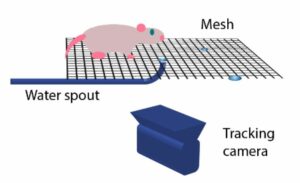
Abstract
The smooth conduct of movements requires simultaneous motor planning and execution according to internal goals. So far it remains unknown how such movement plans are modified without interfering with ongoing movements. Previous studies have isolated planning and execution-related neuronal activity by separating behavioral planning and movement periods in time by sensory cues. Here, we separate continuous self-paced motor planning from motor execution statistically, by experimentally minimizing the repetitiveness of the movements. This approach shows that, in the rat sensorimotor cortex, neuronal motor planning processes evolve with slower dynamics than movement-related responses. Fastevolving neuronal activity precees skilled forelimb movements and is nested within slower dynamics. We capture this effect via high-pass filtering and confirm the results with optogenetic stimulations. The various dynamics combined with adaptation-based high-pass filtering provide a simple principle for separating concurrent motor planning and execution.